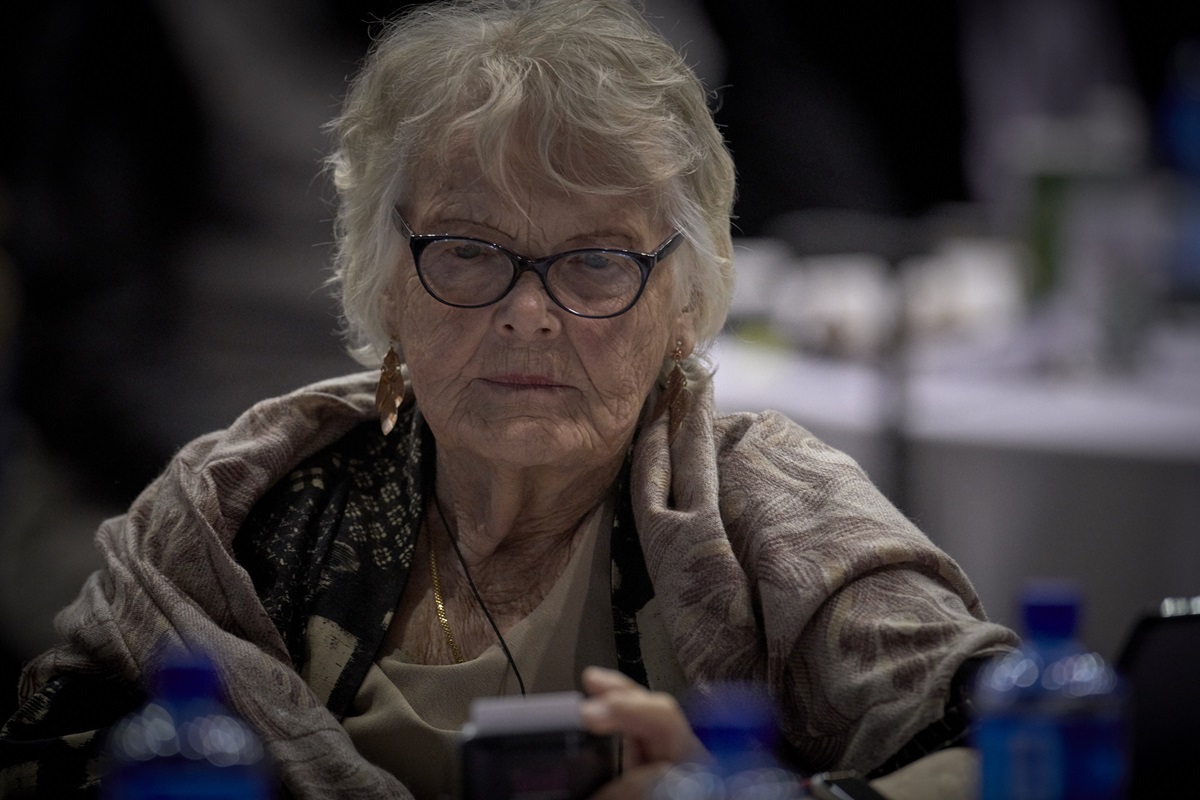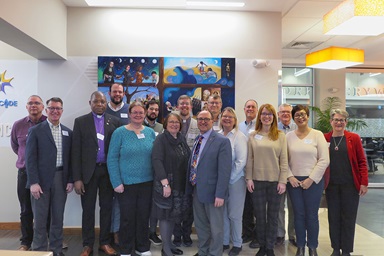General Conference delegates are set to begin their work first thing Feb. 25 on refining legislation in the Traditional Plan.
However, even the plan’s proponents acknowledge the lawmaking process is far from complete. Advocates for the One Church Plan also are not throwing in the towel.
In a key vote, delegates to the denomination’s top lawmaking assembly decided to prioritize working on the Traditional Plan over the One Church Plan, which a majority of bishops recommended.
The Traditional Plan, which seeks to strengthen enforcement of prohibitions related to homosexuality denomination-wide, received 459 votes to be a high priority for discussion.
The One Church Plan, which leaves questions of same-sex marriage and gay ordination closer to the local level, received 403 high-priority votes.
“Personally, I’m pleased the Traditional Plan has higher priority than the One Church Plan,” said the Rev. Tim McClendon, delegate from the South Carolina Conference and one of the Traditional Plan’s champions.
“But tomorrow is sausage-making. I’d rather be on this side than the other, but it’s not over till it’s over.”
Jay Brim, a delegate from the Rio Texas Conference and One Church Plan backer, said he was surprised to see the Traditional and One Church plans each get so many votes. More than 820 delegates participated in the voting.
“The easy conclusion is that some percentage of delegates voted both to be a high priority,” he said. “The question is: How many will vote for final passage?”
Bishop John Wesley Yohanna of Nigeria said legislation is always subject to revision up to the final vote.
“This is not conclusive,” he said. “I am not a delegate. But delegates have a right to bring big changes.”
General Conference, historically, is no stranger to dramatic developments, which can simply mean delegates choosing to substitute one legislative plan for another. Certainly not all such efforts are successful.
Legislation might also face questions to see if it is in line with the denomination’s constitution. Traditional Plan backers already expect to offer amendments to address constitutional problems identified last year by the Judicial Council, the denomination’s top court.
The Judicial Council, earlier during General Conference, struck down as unconstitutional part of the Modified Traditional Plan, which augments the Traditional Plan. Backers say they can revise the petition, which aims to create a new mechanism to hold bishops accountable.
Only a fifth of General Conference votes are needed to refer legislation to the Judicial Council for review.
The Rev. Hortencia Bacela, head of delegation of Mozambique Episcopal Area, said she was disappointed the Traditional Plan did not receive more votes.
“However, this is not the end of the road. If it is the final decision and the will of God’s people, let it be,” she said.
The Rev. Jonathan Razon, delegate from the Northeast Philippines Conference who supports the Traditional Plan, said the voting "is an indication of the sentiment of the majority of the GC delegates."
Emma A. Cantor, a delegate from the North Central Philippines Conference, said the vote brought her hope.
"I am hoping that election today made us close to one another towards one church, more conversation, more mission and deep friendship and an opportunity that gives the meaning of being God's church in today's world," she said.
Protests also are a possibility.
The Rev. Will Green is an observer with the unofficial advocacy group Love Prevails, which champions LGBTQ equality and has interrupted church meetings in the past to bring attention to what members see as discriminatory policies.
“LGBTQIA United Methodists are going to continue to witness to the Good News of Jesus Christ,” Green said. “When The United Methodist Church or the General Conference distorts God’s message, they are setting themselves up for conflict and disruption. Just the same, we will continue to tell the truth and embody it.”
It should be noted that not all LGBTQ United Methodists or allies support such tactics.
Bishop Karen Oliveto, who leads the Mountain Sky Conference and is the denomination’s first openly gay bishop, spoke to a gathering of LGBTQ United Methodists soon after adjournment on Feb. 24.
“We are going to bring our love, our connection, our spirit, our joy, because the church would die without us. Your life has meaning, your love inspires me, I keep going because you keep going.”
Bishop Gregory V. Palmer, who leads the West Ohio Conference, is no stranger to legislative ups and downs. In 2011 and 2012, he joined other church leaders in developing a plan to restructure general church agencies that the Judicial Council ultimately ruled unconstitutional on the last day of General Conference.
He has served on the Commission on a Way Forward, whose report to General Conference included both the Traditional and One Church plans. A majority of commission members affirmed the One Church Plan.
The Book of Discipline, the denomination’s policy book, requires that all petitions receive a vote in legislative committee.
However, Palmer suggested, it’s quite possible delegates will not have time to perfect the One Church Plan and simply let it die in committee.
"Time is the tyranny,” he said. “Three days is a short window."
Hahn is a UMNS reporter in Nashville. Sam Hodges, Kathy L. Gilbert,J oao Sambo and Gladys Mangiduyos contributed to this story. Contact Hahn at (615) 742-5470 or [email protected]. To read more United Methodist news, subscribe to the free Daily or Weekly Digests.
Like what you're reading? Support the ministry of UM News! Your support ensures the latest denominational news, dynamic stories and informative articles will continue to connect our global community. Make a tax-deductible donation at ResourceUMC.org/GiveUMCom.




